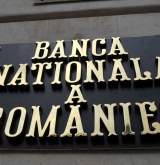A different M&A landscape in Romania
“Now we see a different landscape of the Romanian M&A market. We have a changing market, and I expect to see a variety of drivers to fuel the local M&A market, such as force-feeding deals and reorganizations/restructuring, which account for merely one segment of merger and acquisitions that will be concluded in the following months”, Philippe Lajat, M&A Partner Ernst & Young, told Wall-Street in an interview.
Classic strategic deals represent the second support pillar of the merger and acquisition market, as part of the expected consolidation processes in various key-market segments. “The deal market between private companies is not fully locked down, and we, financial advisors, respond promptly and actually have our work cut out in this period“, said Philippe, who has had experienced deals in France and the United States.
According to recent estimations of investment banks with local presence, the local M&A market will shrink by 20-30% in 2009 from last year, when deals concluded in Romania amounted to more than 5 bln euros.
“Currently, we have a pipeline of deals at different stages sized from few million euros to over 100 mln euro mandates. We clearly monitor with our clients what should be the most appropriate tempo, stressing the preparation phase (key to convince) and adapting / tailoring the transaction process to the shareholders’ objectives, the group’s situation and the current market conditions”.
A year with top deals for Ernst & Young
| Rank | Target | Buyer | Industry sector | Deal value | Ernst & Young assistance |
| 1. | Asiban | Groupama | Insurance | 350 | Yes |
| 2. | Unita | VIG | Insurance | 230 | No |
| 3. | Bere Mures | Heineken | FMCG | 150 | Yes |
| 4. | LaborMed | Advent International | Pharma | 123 | Yes |
| 5. | LaDorna | Lactalis | Food | 100 | Yes |
| 6. | Ardaf/RAI | Generali PFP Holding | Insurance | 80 | No |
| 7. | Cargus | DHL | Transport | 50 | No |
| 8. | Avrig 35 | New Europe Property Investments | Real Estate | 44 | Yes |
| 9. | Capital Parners | Piraeus Bank | Asset Management | 32 | Yes |
| 10. | Simcor Oradea | Macon Deva(Enterprise Investors) | Construction materials | 53 | No |
*Frozen deal, according to Money Express
“Currently, the buy-sell mandates ratio remained balanced at Ernst & Young, even if in last year’s fall, we’ve witnessed a turning point in the M&A market when buyers gained leverage.”
Lajat says he has had several discussions with some entrepreneurs willing to seize opportunities in the current environment, including: how to significantly accelerate growth in times when competition is in difficulty, through focused external growth, and second of all, fund raising “we are discussing with an experienced team willing to launch an investment fund focused on quality assets under distressed situation”, said Philippe Lajat.
Negotiations and mandates in times of crisis
In addition, Ernst & Young Romania’s M&A professionals work closely with Ernst & Young’s international M&A network on various cross-border opportunities for either financial or corporate clients interested in Central and Eastern Europe, Ukraine and Turkey. “We clearly can offer both a regional and local approach to our clients. There are regional players looking to expand in Romania as well, and other examining the expansion through acquisitions in the local market. Romania still attracts solid interest”, said Lajat. “On the other side of the scope, we see international groups focusing on their core markets which are reconsidering their presence in some emerging markets, among which Romania” he added.
Nonetheless, Philippe expects inbound deals to hold the supremacy in the M&A market, and domestic and outbound deals to remain at a slowing down potential.
Currently, companies within Ernst & Young’s M&A advisory portfolio are active in manufacturing, food and beverages, services to companies and IT services, real estate as well as in energy and renewable energy.
Ingredients to unlock opportunities in M&A market
First of all, Lajat says, we will see more force-feeding deals of large Romanian entrepreneurs that will decide to partially or totally relinquish their business.
Second of all, there will be deals driven by financing or refinancing considerations. The global downturn of the economy has deteriorated companies’ cash flow generation, putting pressure on how to face borrowing commitments or inducing increased needs for financing. “However strange as it may seem, liquidity currently may exist but on a very selective basis. This is confirmed by some of the most important and largest lenders in the market place. Depending on their historical risk policy and current exposure, some lenders will reconsider bringing financing solutions to projects. Again, lenders’ decision will be based on how convincing business cases and financial analyses are as well as on relationship issues. That is why we stress preparation phases to entrepreneurs (strategy assessment, scenarii analyses). This also contributes to illustrate management quality”, the Ernst & Young’s M&A partner adds.
Third, trust and confidence. The lack of trust accelerated the crisis. Confidence among business partners, trust in the (financial) system need to be restored.
“In the meantime, most of our clients are focusing on securing their present and their assets. And we clearly invite them to do so in the current difficult environment”, Lajat said. He had met with entrepreneurs who decided to manage their asset portfolio with pragmatism, assessing what was core and not core to their business, where did management bring value and where less. “They clearly ask for support and they value our capacity to assist them on how to evaluate the situation, how to be the most efficient, and how to best allocate scarce financial resources to their group’s development / sustainability”.
Resetting the valuation multiples
As an illustration, it is worth noting that in 2008, on aggregate market capitalization of top 30 companies of EMEIA, biotech and pharma sector decreased less than 10%, and real estate, banking and metal & mining decreased of more than 50%.
Ernst & Young approved last year establishment of a new area for its international operations, named EMEIA. This area comprises 87 countries in Europe, Middle East, India and Africa of the total 140 across the globe, where the company is currently present.
Potential buyers are no longer willing to pay the same price compared to a year earlier, and in terms of gap or range, the bottom of the range may reach 30 to 40%, sometimes more, says Philippe Lajat. “I think it is important however to differentiate value impact driven by the sector, and value impact driven by the target’s positioning within its competitive environment (benchmarking) and its capacity to address the current situation (management quality). And this may induce significant differences within a sector”.
Private equity funds will return on the negotiation table
From his discussions with private equity funds, Lajat believes that the spectrum of PE’s strategies is currently large: some focus on their existing portfolio bringing support and reassessing strategies and resources, as well as others scanning the environment for some possible deals in Romania.
“Not a single PE that we are in contact with declines to look at opportunities as long as it fits their investment criteria - that have tightened, indeed (clear understanding of the target strategy and insurance of the robustness of the end market are required, with demand for attractive prices, of course)”, Philippe Lajat explained.
PEs’ appetite will clearly depend on different considerations including the amount of available cash PEs may have (from recent fund raising or still to be invested), the attention required by their portfolio, their industry focus, their opinion on the country’s current profile, potential and price, Philippe Lajat added.
“Investment fund will return on purchase, as long term market growth drivers look positive, in my opinion. We have several solid requests from private equity keen to invest in emerging markets. They seek opportunities, but we also have requests for distressed asset deals”, says Lajat.
Mezzanine financing, an opportunity amid crisis
We will see few LBOs in the coming period, not the classic type, but financial reorganization. “The time may have come in Romania for mezzanine funds that now enjoy a real success in mature markets”, says Lajat heralding the entrance of mezzanine lenders in Romanian market.
The so-called mezzanine financing, little known in Romania, is a loan granted by an investment or a mezzanine fund to a company that gives the lender the rights to convert to a pre-determined ownership or equity interest in the company (usually limited) if the loan is not paid back in time and in full.
Mezzanine lending is frequent in LBOs, company acquisitions, business development, bridge-loans, recapitalizations and restructurings, as well as in minority stake buyout of the company.
The yield of mezzanine investments is nearly 12-17% throughout the investment time, level above banks (7-8%) for loans, and below the return rendered by private equity funds (at least 25%).
Mezzanine financings are long-term subordinated loans, of five to eight years, fully reimbursable in time, the lender having the option of becoming shareholder of the borrower under agreed upon conditions.
The costs afferent to this type of lending consist in the flat interest and earnings from the sale of shares held at the respective company.
Profile of a M&A professional: Philippe Lajat
Previously, he was with the Corporate Finance Department of Ernst & Young Transaction Advisory Services in France since 2000, after eight years with Société Générale in Paris and New York. At Société Générale he was responsible for corporate finance, structured finance (leveraged buyouts) and capital market operations (IPOs, takeovers, capital increases, etc.)
With nearly 15 years’ experience in corporate finance, Philippe successfully concluded assignments concerning company takeovers, new share issues and corporate disposals /acquisitions for the subsidiaries of leading business groups or independent companies.
























































![HR [PLAY] Tech Workout - 11...](https://www.wall-street.ro/image_thumbs/thumbs/973/973fe0a3888d417feff63de42e814180-260x260-00-65.jpg?v=1714020345)










